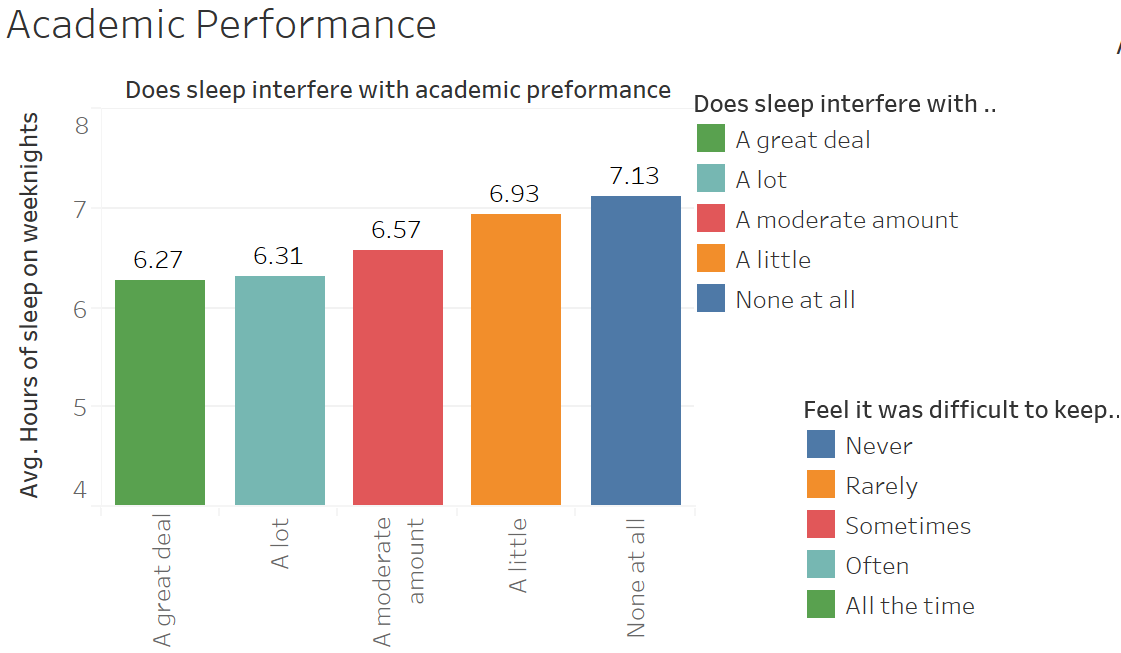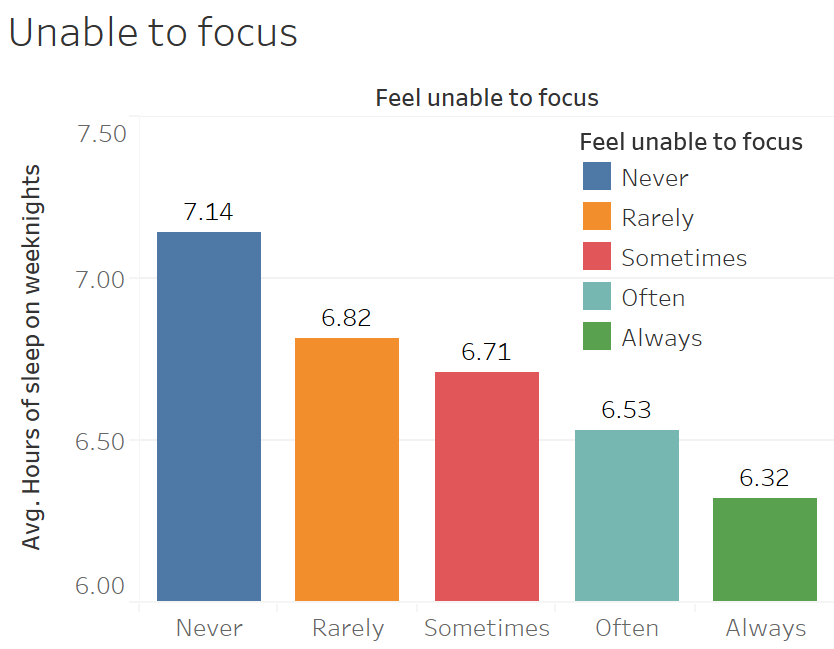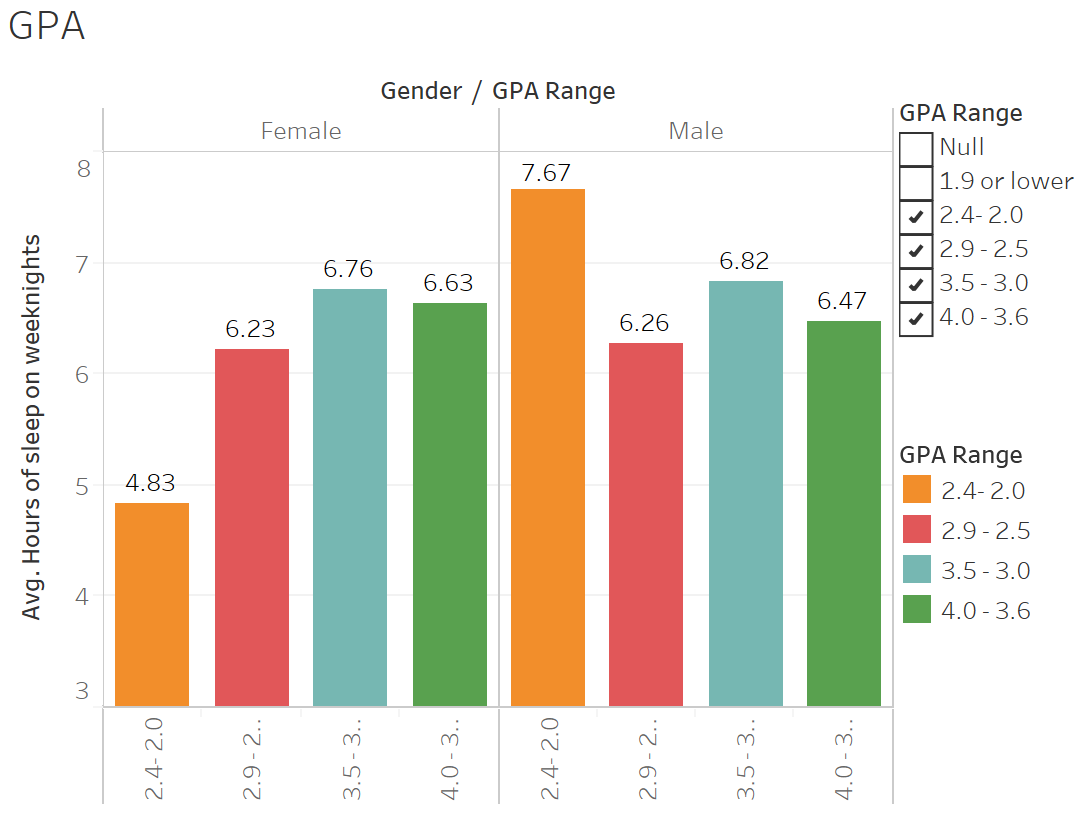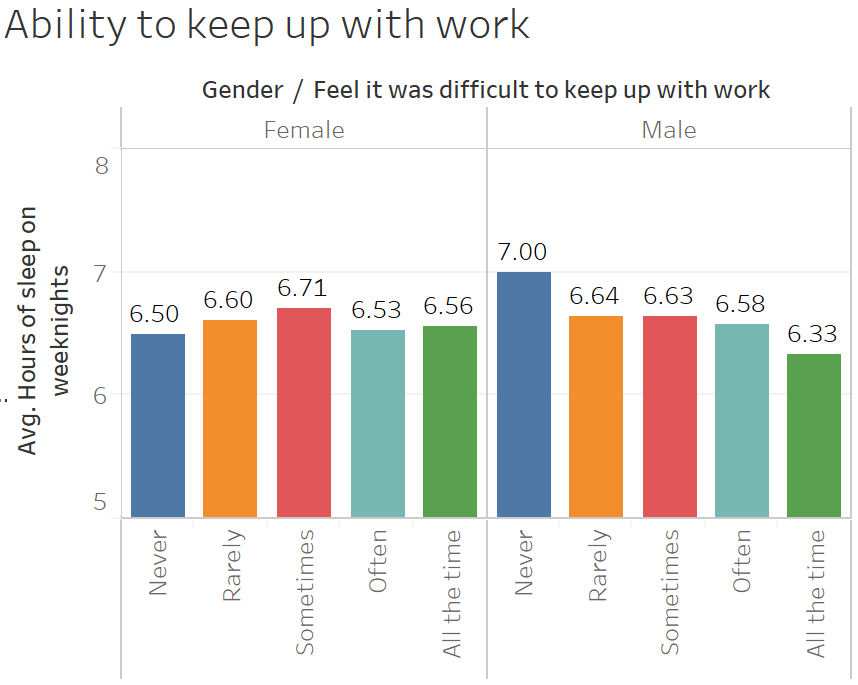Lehigh was ranked No. 7 in a 2016 review of the most sleep-deprived colleges in America. The review, conducted by Jawbone fitness monitoring, reported Lehigh students typically got an average of 6.75 hours of sleep, below the recommended 7.5 hours.
Lehigh’s challenging curriculum and opportunities for involvement only further contribute to students’ lack of sleep. In a recent student-led survey, 246 student responses were recorded across a range of grades and groups. In the survey, students were asked about their average hours slept per weeknight. Their answers were then analyzed to find how a lack of sleep could impact students’ academic performance and overall health.
The data showed when female students got more sleep, they experienced an increase in their GPA. These results were not the same for male students, who reported less sleep per night resulted in a higher GPA.
Students who get less sleep per night have a harder time focusing throughout the day, while students who averaged at least 7.14 hours of sleep per night reported increased focus.
Bergen Kassof, ’18, is a member of the Lehigh Peer Health Advisers. She said the group holds four to five events per semester to talk about the importance of sleep.
“We have a facilitation that we give to requesting organizations called ‘Sleep for Success,'” Kassof said. “It teaches students healthy sleep habits and talks about the importance of sleep for everyday functioning, learning and memory.”
Male students who slept less found it harder to stay on top of their classwork. They reported that it became more difficult to keep up as their sleep per night decreased. With female students, the level of difficulty remained consistent regardless of the amount of sleep they were receiving.
The survey showed the more sleep males got each weeknight, the more active they felt. When females got more sleep, they said they felt less active overall.
Sleep also had an effect on students’ mental health. Students were asked if they ever felt emotionally unstable to see if sleep was a determining factor. Females who reported more sleep per night felt more emotionally stable, while males’ mental states did not have any kind of trend.
Students’ involvement on campus was another factor measured in the survey. Among females, less involved students were able to get more sleep. Males’ campus involvement did not appear to affect the amount of sleep per night.
Saral Patel, ’19, is involved in Greek life. He said he usually gets around six hours of sleep each night and aims for a one-hour nap each day.
“I never felt like sleep made that much of a difference in my day and level of activity,” Patel said. “It isn’t a big priority for me.”
Although the amount of sleep students get each night impacts their academic performance, colleges and universities sometimes neglect to take these factors into account when scheduling classes.
“I have class at 7:55 a.m. twice a week, and by the time it’s 4 p.m. I am supposed to be doing homework,” Lexi Jabour, ’19, said. “I am too tired to do anything. Getting up that early messes up my day.”
According to the survey results, if students were able to get more sleep each night, their overall well-being would improve. Getting a good night’s rest can have positive, immediate impacts on both students’ schoolwork and overall life habits.









Comment policy
Comments posted to The Brown and White website are reviewed by a moderator before being approved. Incendiary speech or harassing language, including comments targeted at individuals, may be deemed unacceptable and not published. Spam and other soliciting will also be declined.
The Brown and White also reserves the right to not publish entirely anonymous comments.